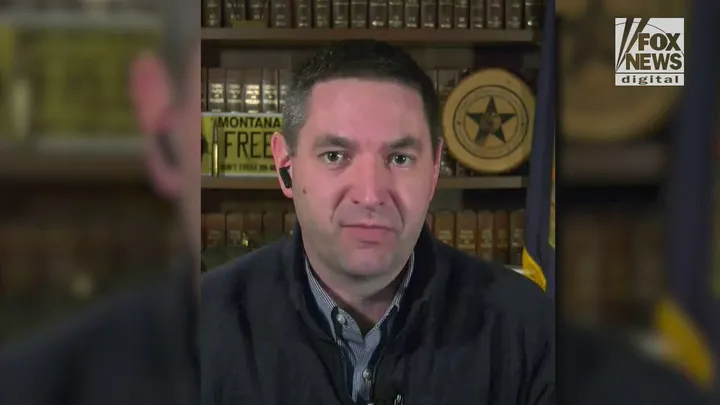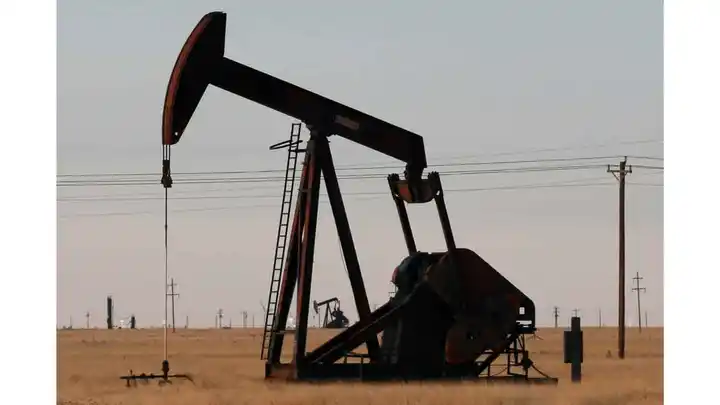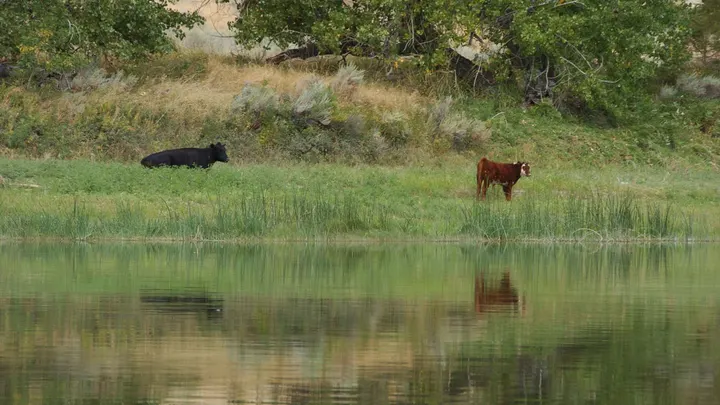The mining association said the environmental proposal was ‘illegal and should be withdrawn immediately

A proposal by the Biden administration, which aims to secure federal land and prohibit conventional activities such as energy development, is encountering strong resistance from various stakeholders.
In March, the Bureau of Land Management (BLM) introduced federal regulations that would enable environmental organizations opposed to fossil fuel drilling and mining projects to lease land for conservation purposes, thereby impeding resource development. The agency has extended the public comment period for the rule until Wednesday and has received over 170,000 comments.
Montana Attorney General Austin Knudsen expressed his concerns about the Bureau of Land Management’s (BLM) actions, stating in an interview with Fox News Digital, “What we currently have is BLM attempting to push through another broad, all-encompassing rule that contradicts the Federal Land Policy and Management Act.” He further explained, “They are attempting to argue that conservation now falls within the definition of permissible uses under the Federal Land Policy and Management Act and are trying to achieve this through rulemaking.”
Biden uses Independence Day to Call for Tougher Gun Control Laws
Knudsen continued, emphasizing the violation of federal law, stating, “This action blatantly disregards federal law, but they are attempting to do it discreetly.” He further added, “Since they are unable to accomplish their goals through Congress and the Senate, they are resorting to rulemaking as an alternative method.”
Additionally, Knudsen pointed out that the proposal signifies a significant policy change that should be pursued through legislative means rather than relying on BLM regulations. He also highlighted that the proposal appears to violate the Administrative Procedure Act, a law established in 1946 that mandates federal agencies to provide sufficient justification for the regulations they implement.
Knudsen actively participated in letters alongside other state attorneys general to express their opposition to the proposal. In the comment letters, Knudsen and his counterparts, as top law enforcement officials, asserted that the BLM’s actions would result in substantial harm to the energy, mining, agriculture, and cattle industries. They further argued that such actions would be in violation of the Federal Land Policy and Management Act (FLPMA) of 1976.

According to the Federal Land Policy and Management Act (FLPMA), Congress established the BLM’s obligation to manage lands under a “multiple-use” and sustained yield mandate. This means that the BLM is required to make the lands it oversees available for different purposes, such as energy development, grazing, recreation, and mining.
The BLM’s intention with this action is to give conservation an equal status as other uses. The agency claims that this approach would enhance the resilience of public lands to climate change, protect wildlife habitats and landscapes, and preserve cultural and natural resources. According to the rule, organizations would have the opportunity to bid on land and carry out specific restoration or mitigation activities.
Knudsen argued, “The uses are clearly defined in FLPMA. Nowhere in that legislation does the term conservation appear, as conservation essentially implies non-use.” He further expressed, “Therefore, what this proposal would effectively do is restrict large portions of federal land for the purpose of ‘conservation.’ However, that is not an authorized use under the law. If they wish to pursue such an objective, they should follow the proper channels: go to Congress, pass a bill, and obtain the president’s signature. But they are aware that they lack the necessary support to accomplish that.”
Alongside Knudsen and numerous attorneys general, several industry groups have voiced their opposition to the proposal during the comment period.

Industry groups including the National Mining Association (NMA) and the American Exploration & Mining Association (AEMA), as well as local cattlemen’s associations, farmers’ groups, and oil industry organizations, submitted comments expressing their concerns regarding the rule.
NMA counsel Katie Mills communicated to the BLM that, from their perspective, the proposal signifies a significant shift in the BLM’s management of federal lands under the multiple-use mandate of the Federal Land Policy and Management Act (FLPMA). Mills emphasized that the potential consequences for NMA members engaged in mining operations or other activities on federal lands are substantial.
In a separate letter, AEMA Executive Director Mark Compton stated that the Proposed Rule is unlawful and should be promptly withdrawn. Compton pointed out that while the rule superficially acknowledges FLPMA, it fundamentally violates the law in multiple ways, including the unauthorized inclusion of ‘conservation’ as a ‘use’ despite its absence from FLPMA’s specific list of uses.
The Nevada Farm Bureau Federation echoed the sentiment that the rule should be withdrawn and expressed concern regarding its potential impact on small businesses, particularly ranchers who rely on public lands.
The South Dakota Cattlemen’s Association expressed a similar viewpoint, stating that the BLM’s proposal was developed without any involvement or awareness from stakeholders. The association argued that the BLM should retract the rule until it engages with producers. It emphasized that farmers and ranchers, who are directly affected by the rule, have a long-standing history as the original conservationists.
In a comment letter, Jim Winchester, the Executive Director of the Independent Petroleum Association of New Mexico (IPANM), respectfully requested that the BLM withdraw and reconsider the proposed Planning Rule. Winchester highlighted numerous legal deficiencies and significant policy concerns related to the implementation of the rule.
Continuing his statement, he added, “The BLM should redirect its efforts towards promoting the multiple uses of public lands while adhering to its planning authority delegated by Congress through FLPMA, ACEC designation, and wilderness withdrawals. If the BLM decides to proceed with the rulemaking, it must eliminate any provision that allows for conservation leasing.”
In a separate letter, the Montana Electric Cooperatives Association, which represents major electricity providers in the state, expressed concerns that the rule could hinder the development of electricity infrastructure, which could adversely impact renewable energy sources.
